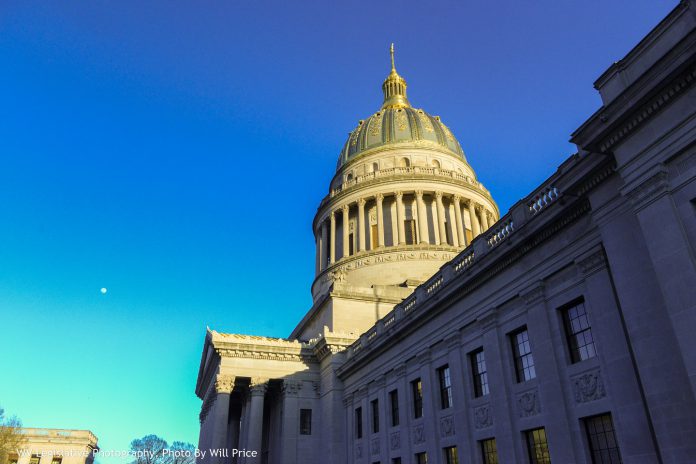Senate Bill 373 establishes the Aboveground Storage Tank Act and the Protect Our Water Fund
On January 9, 2014, a chemical called crude methylcyclohexane methanol, or MCHM, leaked through a ruptured aboveground storage tank at Freedom Industries, a chemical processing and storage facility for the coal industry that sits on the Elk River. West Virginia American Water’s intake valve, that supplies 300,000 people with clean tap water, sits a mile downstream from Freedom Industries.
After discovering the leak, Governor Tomblin declared a state of emergency and ordered West Virginia American Water customers to only use the water to flush the toilet or to put out a fire. The Federal Emergency Management Agency, or FEMA, and the West Virginia National Guard began distributing clean water across the nine counties affected. The Center for Disease Control, or the CDC, determined the safe non-detectable levels for MCHM are 1 part per million. Based on this threshold, West Virginia American Water established zones throughout the nine counties affected and began lifting the “do not use” ban after that zone’s water was tested.
Originally, Freedom Industries reported that 5,000 gallons of MCHM leaked into the river. The estimate increased twice after its original estimate to 7,500 gallons and then 10,000 gallons. Additionally it was later reported that, although the tank was predominately storing MCHM, it was a mixture of six other chemicals including propylene glycol phenyl ether, or PPH.
Senate Bill 373 is designed to protect water resources and the public health in West Virginia. This legislation establishes the Aboveground Storage Tank Act, the Protect Our Water Fund and revises the Water Resources Protection and Management Act. The bill contains provisions that state all aboveground storage tanks located in the zone of critical concern register with the Department of Environmental Protection (DEP) and undergo an annual inspection. Additionally, all public water systems are required to submit a source water protection plan to the DEP for approval. The plan must include an alternative intake valve incase of contamination, response to contamination and public notification procedures. Under provisions of the bill, the Bureau of Public Health will collect relative evidence in order to conduct a long-term medical surveillance study.

